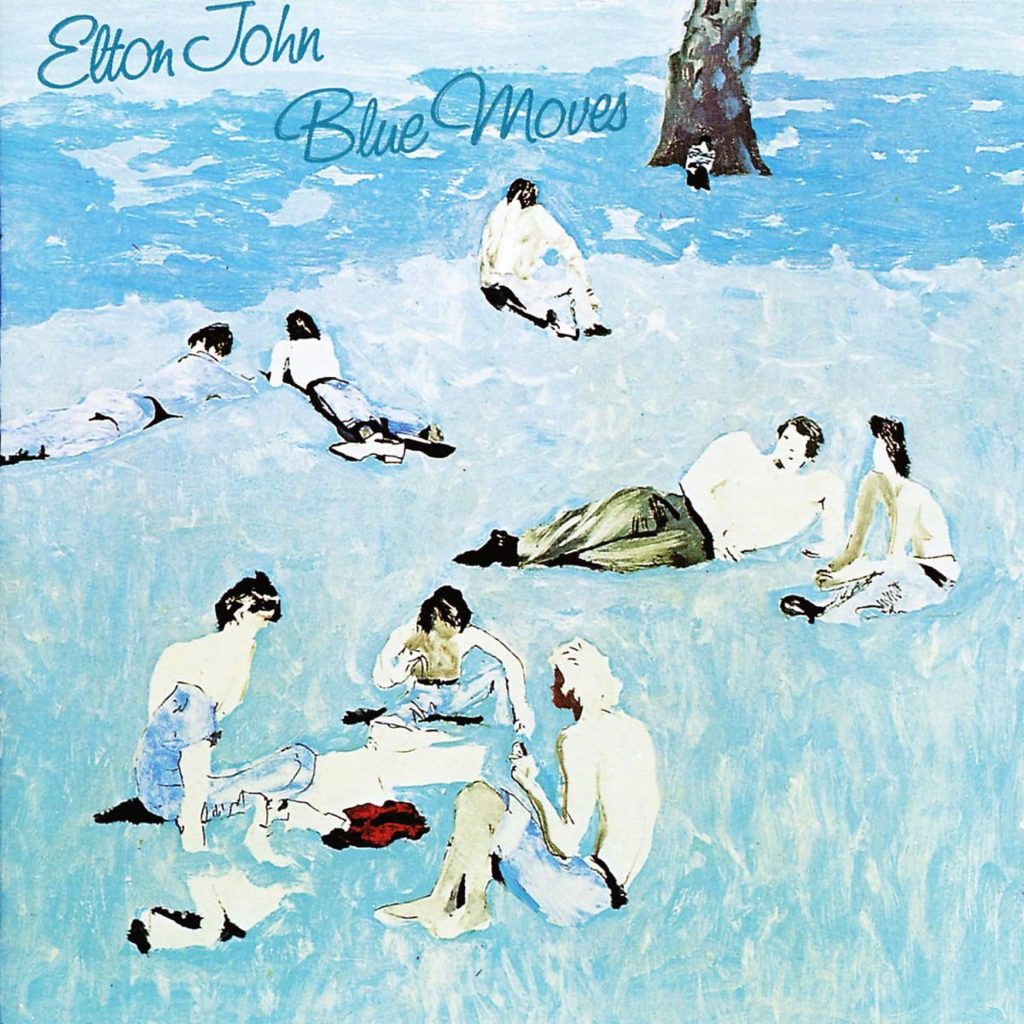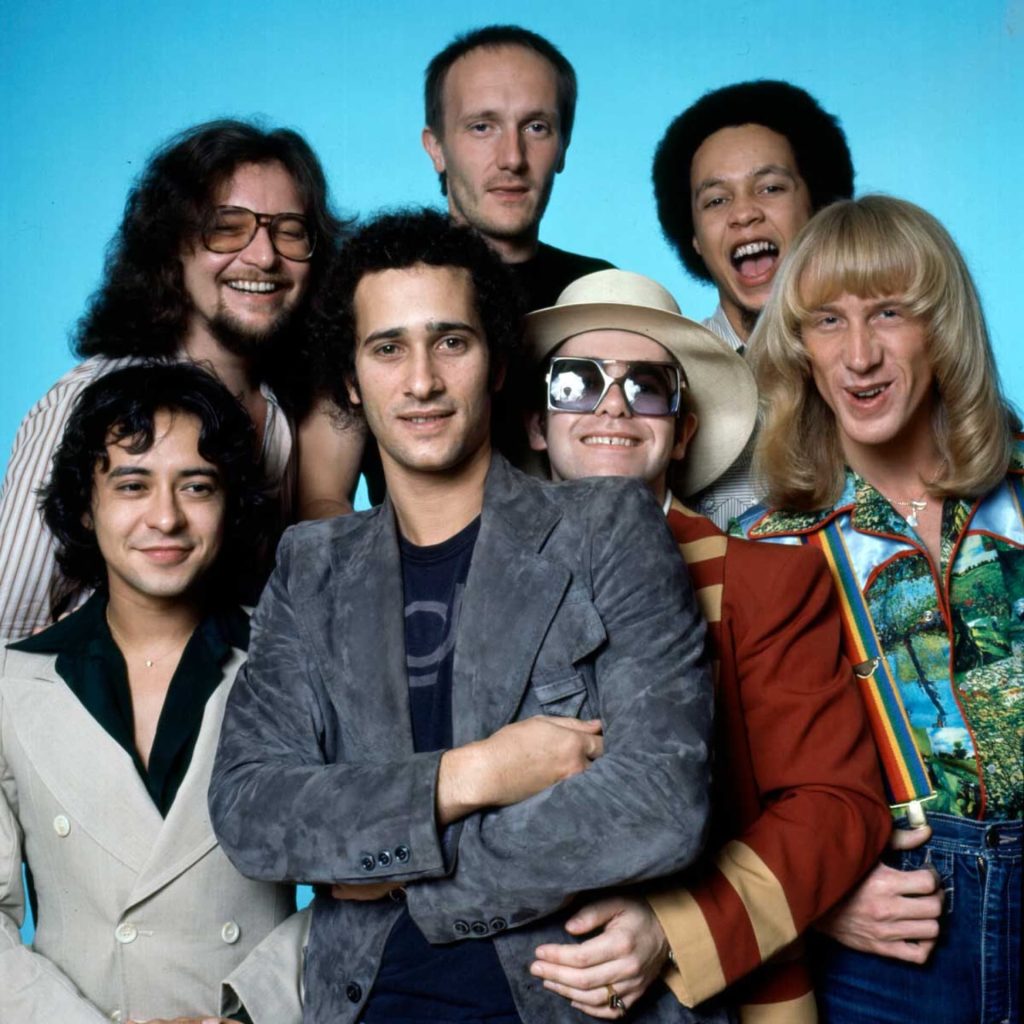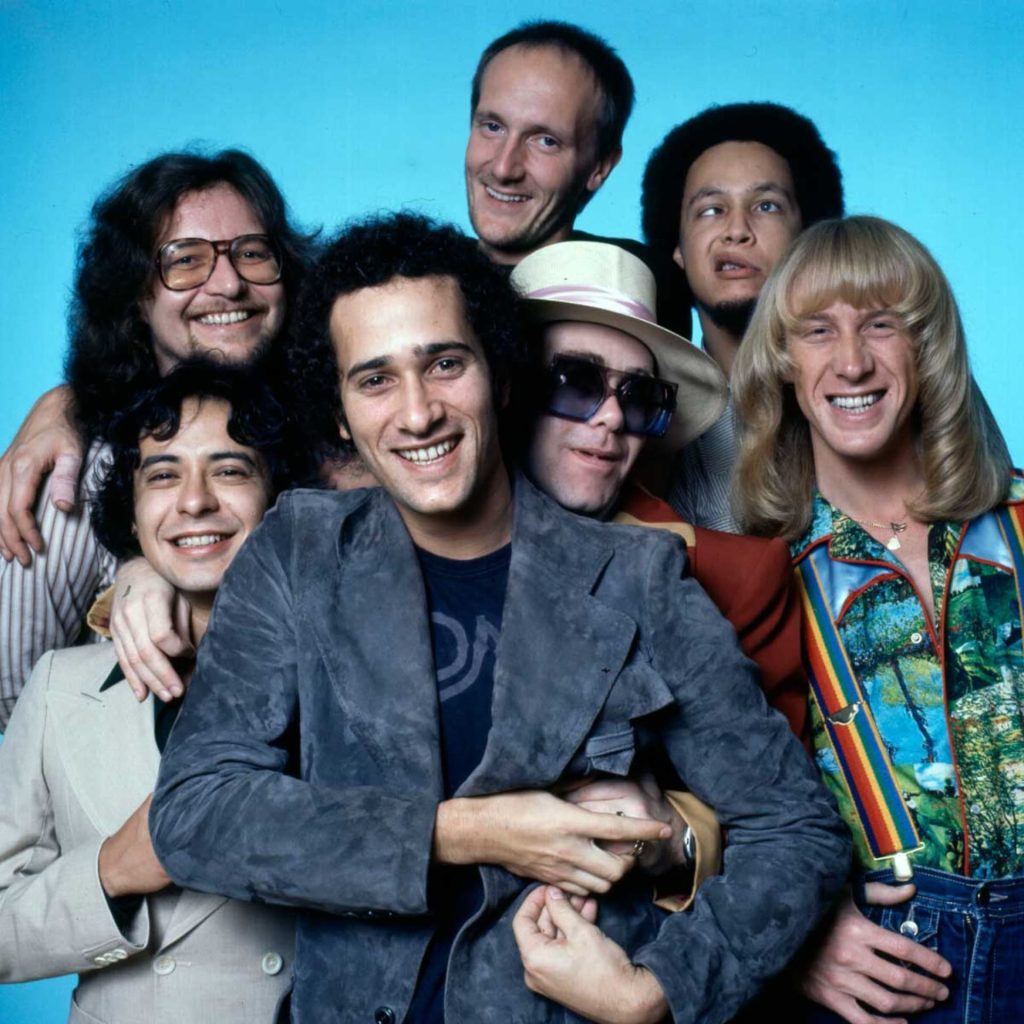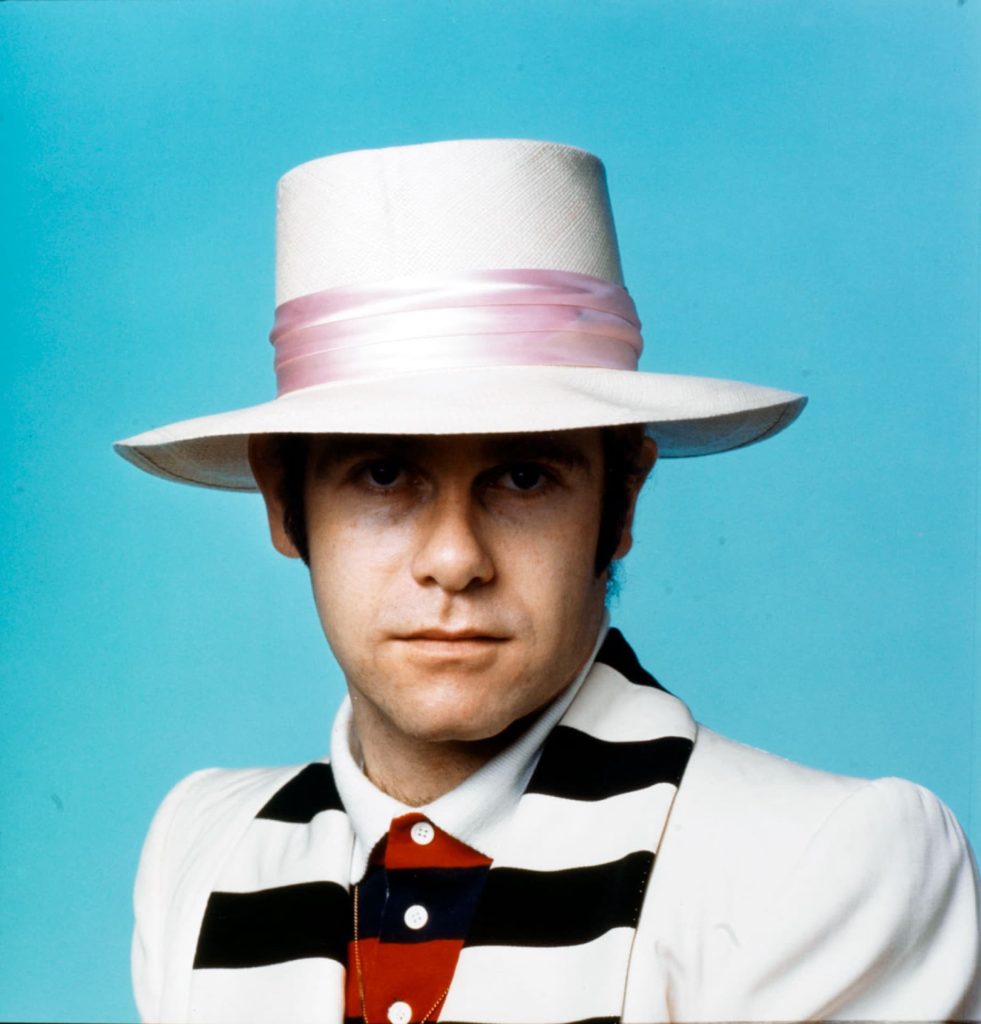Menu
‘Blue Moves’ Celebrates an Anniversary

On October 22, 1976, Elton released ‘Blue Moves’, his second album of the year and his third album in 12 months.
Recorded at Eastern Sound studios in Toronto, Canada during March 1976, the double album contains 18 songs, at least two of which were written well before the sessions began – rare for an Elton project at this point in his career. One of these was Sorry Seems To Be The Hardest Word, a Top 10 single in the US.
We recently spoke with bassist Kenny Passarelli about the making of the album.
Kenny Passarelli: Blue Moves, which got panned when it was released, has really grown in stature…and a lot of it has to do with the fact that Elton has said it is one of his favourite Elton John records.
EltonJohn.com: That’s correct. But it’s not usually listed as one of “those” albums.
KP: Yeah, it’s not like a Goodbye Yellow Brick Road or the Elton John album. But in terms of material, I think it’s right up there. I’ve gotten so much feedback about that record over the years. The guitar player for Kenny Loggins, who is 10 to 15 years younger than I am, told me he grew up listening to that record and that it was a favourite. It’s really a spectacular record. It’s got everything: the orchestrations and emotion, and Elton’s incredible vocal performances.
We stayed in Toronto for about three weeks to a month. Bernie Taupin wasn’t there; he was down in Barbados. He may have come in at the very end. And Elton, as usual, had melodies and he had a concept in mind. But if you look at the publishing credits, there were a few more people involved than just Bernie and Elton. There were some ideas that [keyboardist] James Newton-Howard and [guitarist] Davey Johnstone put together. And [guitarist] Caleb Quaye wrote Your Starter For… and co-wrote three other songs. So there was a lot going on, in terms of collaboration, on that record.
It all started in our hotel suite. I think we stayed at the Park Hyatt Toronto. We had mimosas in the morning and we’d gear up with some coffee and breakfast and we’d talk about what the day was going to be like in that center space that separated the bedrooms. Then we’d go to the studio every day and that was how we did it. The Brecker Brothers, who were in the middle of a tour, came in and listened to what we were doing and they worked on their horn parts there in our Toronto hotel, even though they cut them in LA.
We really had gelled as a band. We had toured in 1975 and were a cohesive unit by the point we got to Toronto. The band was really creative…and Elton was super-supportive of all of it.
EJ.com: One example of this is that, for the first and pretty much only time on an Elton album, you had a band jam: Out Of The Blue. It’s almost like a Weather Report track.
KP: Yeah, it is. It’s all kinds of different stuff going on. That was a jam we put together in the studio, and we cut it live. Even Ray Cooper’s parts…he was right there on the vibraphone or congas (I forget which) with us. It was a big room, so [producer] Gus Dudgeon could get the separation he needed.

Elton in 1975 (Photo: Sam Emerson)

EJ.com: Gus has said that one of his favourite Elton songs that he worked on was Crazy Water.
KP: Really? That’s so cool. That makes me feel good. That track is special. The lyrics… everything about it. And it brings back a lot of memories. I think Bernie wrote those lyrics in Barbados. When I first heard the song, the only thing I saw myself playing was that main lick [the opening piano riff] and I thought, “It can’t get any simpler than that.” If you listen to what I was doing, I’d accent things a little differently once in a while, but there was no place else to go melodically.
EJ.com: Did you know you were working on a special song during Sorry Seems To Be The Hardest Word?
KP: That song is just magic. For the basic track, it was just Elton and myself; the accordion and strings and Ray came on later. It was very sensitive… very heavy. It was a really special performance when we cut that live. And Elton sang it live, although I imagine he went back and re-cut the vocal. The piano was covered, just like at Caribou. Gus had a shell over the piano so if Elton wanted to sing, the vocal wouldn’t bleed into the piano track.

EJ.com: The song Idol also stands out.
KP: I remember us cutting that. Like a handful of the songs on that record, it was just the three of us [Elton, Kenny and Roger]. As Elton was composing it and playing it we all just went into a ‘50s state of mind. My approach was as if I was playing an upright bass (although I was playing my electric Alembic) in a jazz trio in some smoky club. And Roger put those brushes on. Idol was done in one or two takes at the most. That whole album was done in very few takes, really.
If you look at Blue Moves as if it were a watercolor painting – it has so many colors and nothing washes anything else out. Lots of things were ending. It was the culmination of years of work and a lot of stress. And the album’s sonic textures really reinforced some very, very heavy lyrics and a very personal time in the lives of everybody that was in the room – most importantly the composers.
